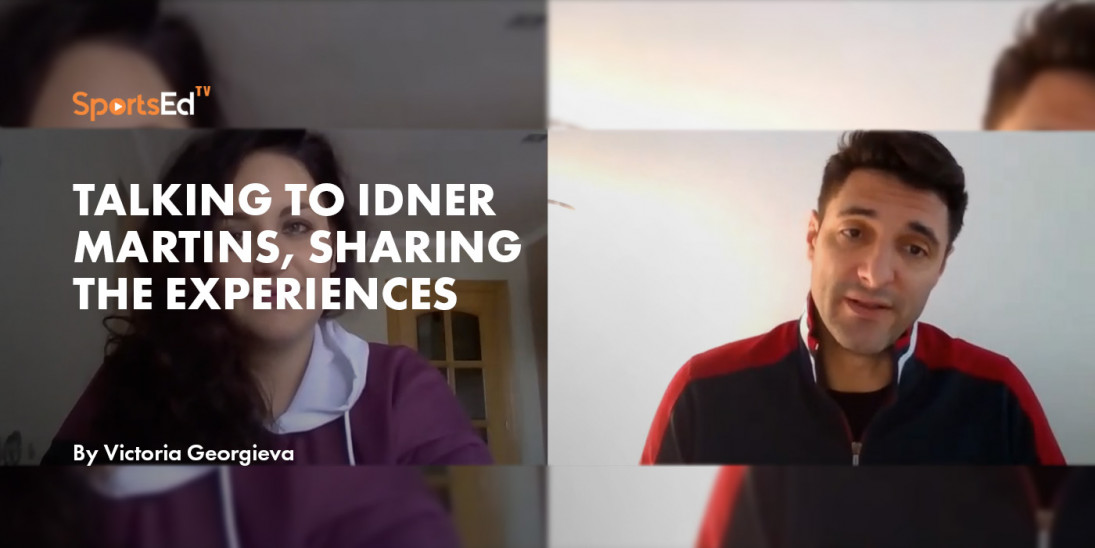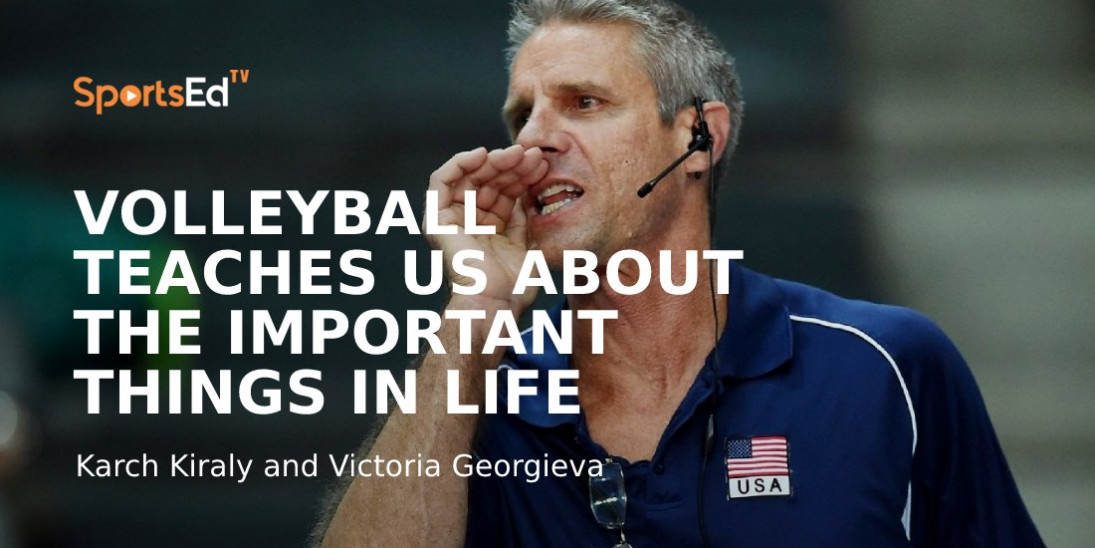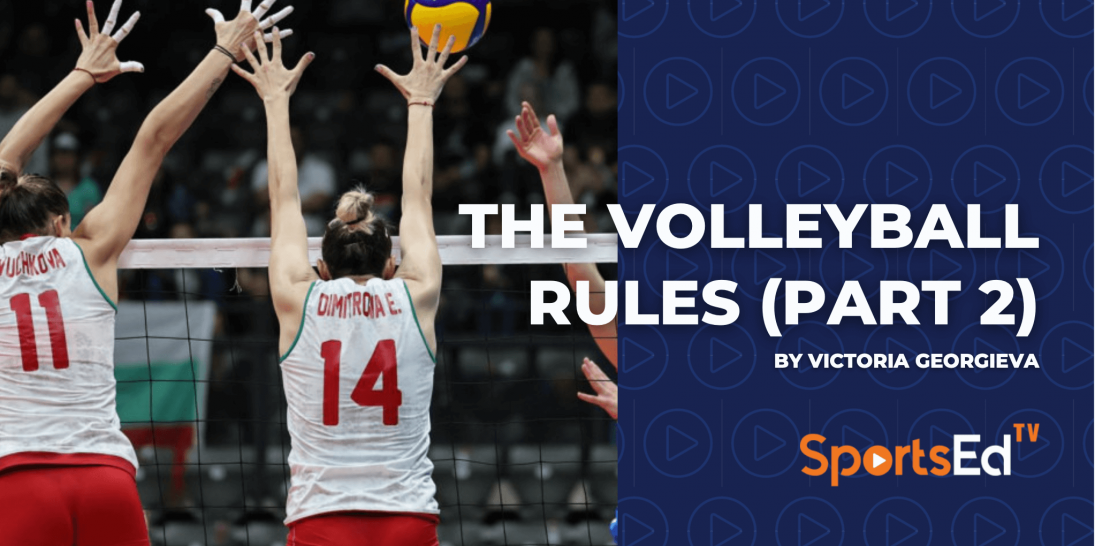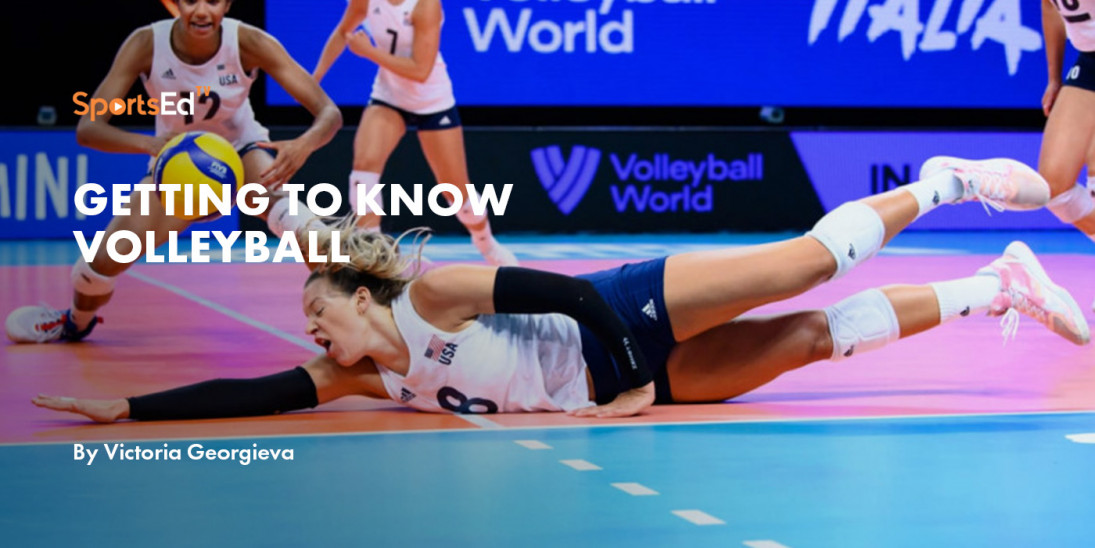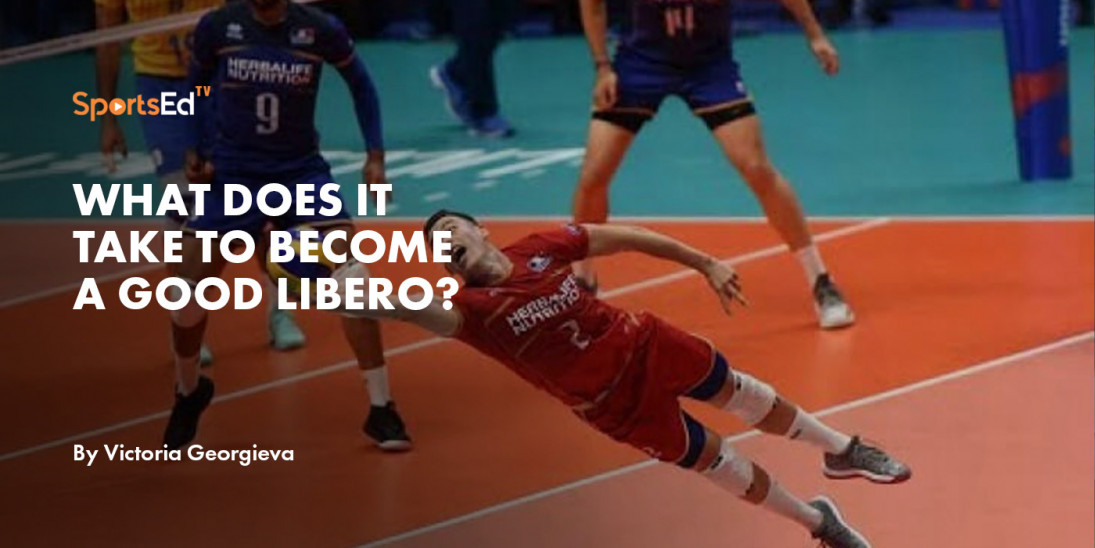Volleyball
Welcome and thanks for visiting...

Julio Velasco: Coaching Means Having Passion for It
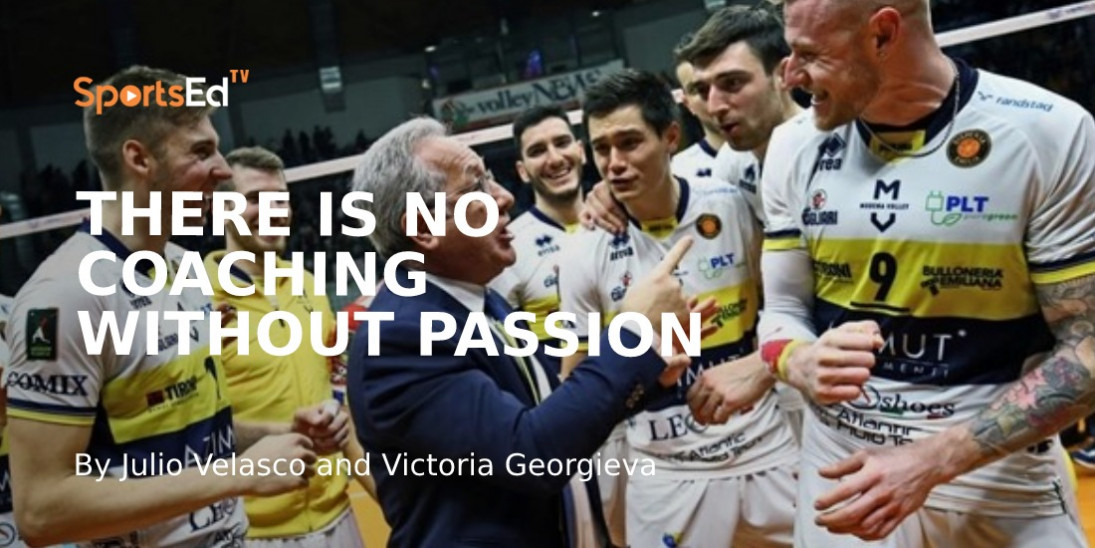
Julio Velasco is one of the most famous volleyball coaches of all time. Born in Argentina, Velasco led the Italian men's national team, known as "Generazione di fenomeni” (A generation of phenomena) from 1989 to 1996.
In 2003, Velasco received another recognition for his work, being accepted to the Volleyball Hall of Fame, category coaches.
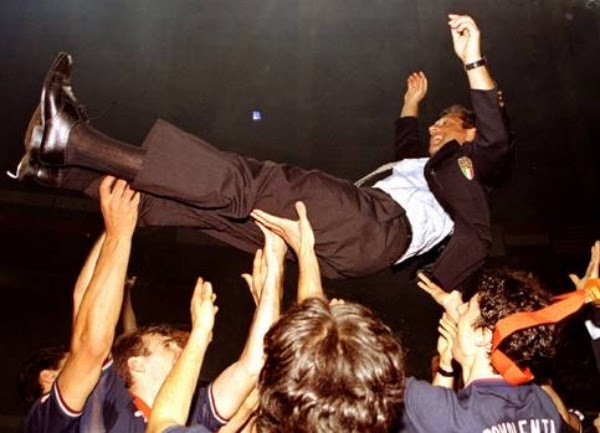
In his long career, the Argentina-born Velasco has coached the national teams of Spain, Argentina, and Iran. Nowadays, he is the technical director of all the junior Italian men’s teams.
The U21 World Men’s Championship finished well for the Italians, who were crowned champions of the world, without a single match loss. Velasco was with the team throughout the whole tournament, taking part in the training sessions.
Together with the German Deutscher Volleyball Magazine, SportsEdTV had the pleasure of chatting with the famous coach, delving into the secret of the Italian success in recent years; the importance of passion in coaching; how to spot the potential of a player, and more.
The Secret Behind Recent Success of Italian Teams
SportsEdTV: Velasco is sure that there is no specific secret related to Italian success in recent times. Only in 2021, the Italians delivered four big successes - winning both European Championships (men and women) and both World Championships in the underage categories (Women U20 and Men U21).
Velasco: “There is no secret, there are some countries that have a good development of young teams, like Italy, Argentina, Poland, Russia. Some other countries, like Germany, are close but not there. I think the difference comes from the quantity of clubs that work with young teams. And the quality of the coaches. The investment of the federation also plays a role, but this is not enough. If the clubs don't have a good development, you have only a few players
Italy is a country of little towns. And in each little town, you have a volleyball team.
What we are doing now is trying to improve the situation of the clubs, especially the little ones. The teams that play in the Super League, have a good level, physical coaches, staff, but the little clubs don't have that much, so we are doing another kind of Club Italia. During the winter, a selected group of players and coaches from each region goes to Rome, to the sports center, and works for one week with our staff. We are going to the clubs as well, to talk to them, to help them. “
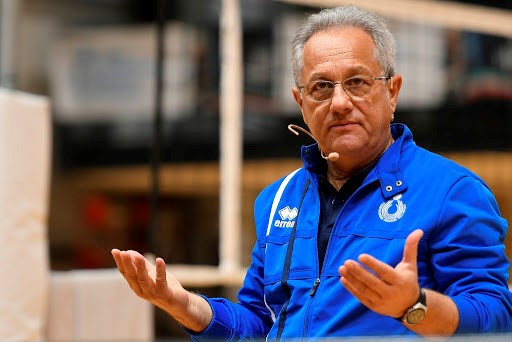
"In Italy, in women's volleyball we are number one - all girls want to play volleyball, we don't have any competition. But when it comes to men's volleyball, we have one very important goal - to recruit boys, not to wait for them to come to say "Hey, I want to play volleyball". We need to look for them. And not only for tall guys, but we also need quantity.”
"But if I have to sum up, I believe that the reason behind the recent success is this - quantity of players, a quantity of clubs, and education of coaches. By education, I also understand, discussing all the time how to be more pragmatic. An example: if you send your child to a primary school, your child learns reading, writing, the first math operations. Every teacher has to know how to teach that. But if you pretend that the teacher knows all the theory that is behind, maybe this is not the case.
The same is with coaches. We need a lot of coaches who know how to teach reading, writing in volleyball, to say so, but not coaches who know everything. If the U14 coach does this, we are ok. If the U16 coach upgrades their knowledge, we are on a good track; and if the U18 coach adds more knowledge than the U16 - ok, that's the way. Not all coaches have to know all the theories.
I know the theory, but after 40 years in the game, I haven’t learned everything in the first two years.”
Is It Enough?
SportsEdTV: Despite the great progress that the Italian teams had in the past years, Velasco remains focused on the main goal, which is not only winning.
Velasco: “I am happy with the results, but I think we can improve much more. Our task is not only winning. We need to develop the movement. We had, and we still have to work hard to improve all the clubs, not only the best ones. We can improve a lot - looking for ways to play players with physical capabilities. We already have some of them, but sometimes I hear an expression: ‘This player is one step forward” because of his physical shape’.
I don’t care if he is one step forward, I care where he can arrive. In the U16, he is better, ok, but when he is 22, who will have more possibilities to arrive? So, we have to foresee. We are definitely doing the job, but we can do better.”
Coaching Is Not Only a Profession.
SportsEdTV: Velasco explains that coaching is not like any other profession, and it doesn’t involve the 9-5 work schedule.
Velasco: “The history of volleyball is the history of coaches in the low level. I think that for the young teams, the coach is everything. You cannot pretend that for a young team, in the beginning, they have a manager, etc. - there is the coach. And as a coach you need passion! Coaching is not a profession, being a coach is like being a musician. You can play at the Metropolitan, but you can play in other places, too.
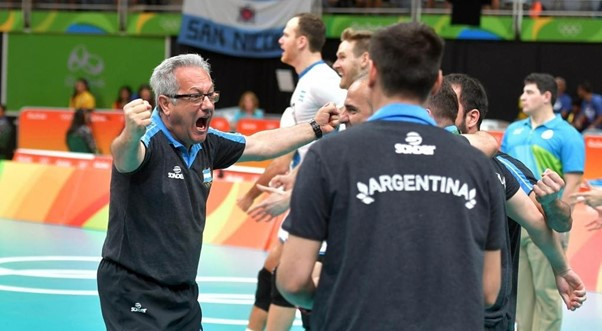
For example, in Argentina, we have very few things. In Italy, we have much more things - money, resources, everything. But in Argentina, we have a lot of passionate coaches. They work for little money, but they work."
Two Types of Coaches
SportsEdTV: In the conversation with the legendary coach, the question around recruiting and preparing coaches arises as well.
Velasco: "There are two types of coaches - first, we have the former players, and then we have physical education teachers who take on the challenge. The problem is what you teach them, how you prepare these coaches. What you have to teach the former player is not what you have to teach the physical education teacher. The second one probably knows more about theory, but you have to teach them about volleyball. The former player knows more about volleyball but doesn't know that many aspects of physical preparation. So, we need to know what we have to teach these two different groups of coaches."
The Role of the Coach in the Younger Team
Velasco: “For a young team, the social life is so important, so we mustn’t focus only on the technical work. When I started playing, my coach was an organizer of our lives, not only the coach. He was the kind of mentor. We went together with him to see matches of the first leagues. We were 15 years old, so you can imagine the thrill of the travel, together with the girl's team. My life when I was an adolescent was around volleyball. And in my opinion, the life of the coach should be the same - around volleyball. The coach has to feel this - not only thinking or accepting that their job is only during the training. The coach has to like this lifestyle, if they don’t - then it will turn out to be a very difficult job.”
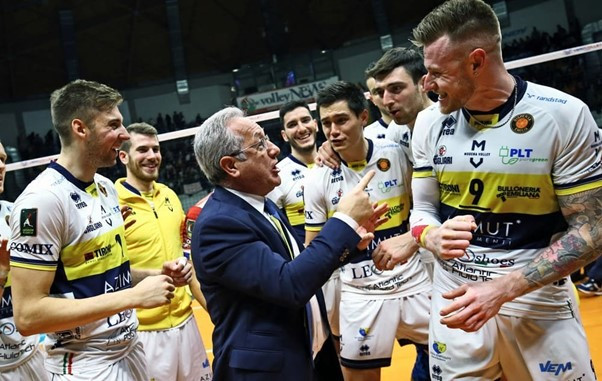
The Importance of the Domestic League
SportsEdTV: Velasco defends the thesis that the level of the domestic league is important, but it is not the main thing.
Velasco: “Of course, it is important, but there are other factors as well. For example, in Argentina - Argentina is always in the Top 4, or Top 5; and the league is not good. Why? Because many players play outside--France, Greece, Italy--40 players from Argentina play now in these leagues. Meanwhile, the local young players in Argentina, play in the first league, because the best players went out. Maybe in some countries, they have other possibilities of work, better possibilities. But you see, the passion does it all. In comparison to other countries, where one can find a job as a physical education teacher in a school, and feel safe and that's it. However, I believe you can do both. You can be a physical education teacher in the morning, and a coach in the afternoon, if you want.
In the volleyball history of Italy, before I arrived in the country, one would be a teacher at school in the morning, and in the afternoon they would go coaching - I remember Silvano Prandi, I remember the cases of clubs like Anderlini, Modena, Parma, Costa Ravenna. They used to do that. They created Italian Volleyball. So why not do both things? Maybe because the coaches who work in the morning, in the afternoon go to the cinema. So, it's not that they don't do anything in the afternoon, it means that they have other hobbies. Again, we need passion. And it makes me think that maybe it is necessary to look for former players who still have this passion and interest. They are 40 years old, and they just finished and need a chance to work. Maybe you have to go to them! Maybe the idea of physical education teachers as coaches is not good in all countries. In the same way, we have to look for players, maybe we have to look for coaches, and not wait for the coaches to arrive."
The Potential of the Player
SportsEdTV: Velasco has a system of how to see the potential of the player, and is aware that the earlier, the more difficult it is to see if a player can arrive at the highest levels.
Velasco: “But I have 5 points that matter to me when I evaluate if a player has potential.
- If they have long arms. I never want the players 2 m tall, but with short arms. I prefer 1.90 m with long arms.
- How much do they jump? Because the jump is not only the jump, it means velocity.
These are two objective things, the other three are subjective.
- What is the level of the basic techniques?
- Which is the capacity to play? (It is not necessarily the same. Sometimes, the technique is not good, but they know how to play)
- And the last thing that is difficult to assume - which is the capacity of learning? Some players are doing very when they are 16-17-18 years old, but after that don't improve anymore. I don't know why - but I know some players like that. The capacity of learning is not necessarily a consequence of intelligence or willingness. I know intelligent players, they work hard, and they don't improve. I don't know if you are born with this capacity, but maybe you develop it in the first years. Maybe in the family, in the primary school? So it is not necessarily genetic. This capacity for improvement means that some players catch up on things easily. We live in a society that is developing fast, and it changes quickly. People, who adapt easily to changes, suffer less.”
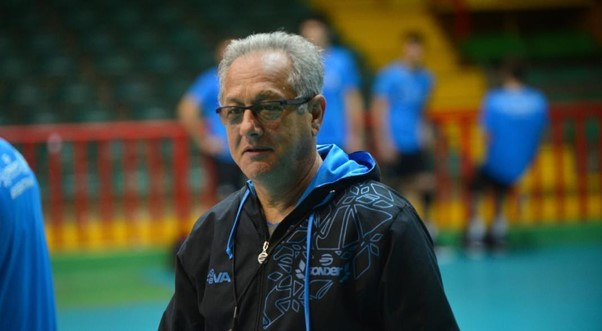
On the Big Stars: Volleyball Myths and Models
SportsEdTV: Leading the "Generation of phenomena", Velasco believes that young players don't need legends, they need players who serve as role models.
Velasco: “Of course, now, for example, Alessandro MIchieletto is one of the top players. He has everything - he jumps, he is intelligent. But I think that in men’s volleyball we must pay attention and be careful to not always talk about the top players. Because the top player is something too far from the average kid, it’s like a Greek myth. I don’t like myths. Legends don’t help, models help.
It’s different. Now, everybody is talking about Michieletto, but we can talk about other players as well, who are closer to the real kids. Maybe we can talk about Giba, or Kubiak, or Papi. Players who are like models for the younger kids - so a young player can think: ‘If I receive well, if I defend well, if I play block out, maybe I can play in the national team, too.’
Michieletto is 2.05, but what about the ones that are 1.90 who have arrived at the highest levels… That creates enthusiasm. Sometimes coaches make this mistake. They show more of the big stars, but we need real examples. I like to show to the youngers that “the stars” also make mistakes: ‘Look, look how many mistakes Leon did,’ for example. Because if you correct them all the time, and the others seem to be too perfect, it’s hard. Everybody makes mistakes…
Stay Pragmatic
SportsEdTV: Velasco is sure that being pragmatic with training and schedules is better.
Velasco: “Sometimes, coaches who coach U14 teams, share that they have boys who say they will come to training, but eventually don’t. Why? Because when the mother goes to ask how many times per week she should drive her kid to the training, the coach had said - four trainings and a match. And she thinks to herself that she would become a taxi driver. So, isn’t it better to say ‘Let’s start with two times per week!’? When the virus of volleyball enters, then you, as a coach, can say four times.
That’s what I mean by being pragmatic. Sometimes, the best program is the worst program. We have to see what the situation is. We must not copy/paste the things with young teams. When I coached junior teams in Argentina, I gave them always Wednesdays free. They could study on Sunday, they could study on Wednesday. And I controlled the notes that they receive at school, so I had also all the parents with me on board. If the players were not good at school, they could come to training, but they couldn't go to the match. All the parents loved me because I was the one to fight.”
Should Coaches Follow Their Feelings?
SportsEdTV: The volleyball specialist shares that when it comes to his career, he is always following his feelings.
Velasco: “Sometimes, I miss coaching. I miss more the process of coaching than the match itself because I love to teach. But I follow my feelings. If I feel like I want to coach again, and if I have a good opportunity, maybe I can do it… I never plan my life, I live. I don't say 'I do this', and do that. Also, this is what I say to young coaches. If I coach junior teams, that’s it for me in the present. It's all. I don't think how I will arrive at the first level. After I arrived at a first-team level in Argentina, I didn’t think - now on the national team. I thought about what I had in the present. Sometimes, U14 coaches think about the Superleague. No, you have to study everything about your league, your category. If you deliver good work, be sure that maybe you will go to U18. If you do a good job, you will go further. Of course, you can do a jump, but still…"

